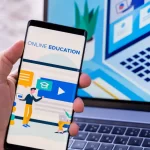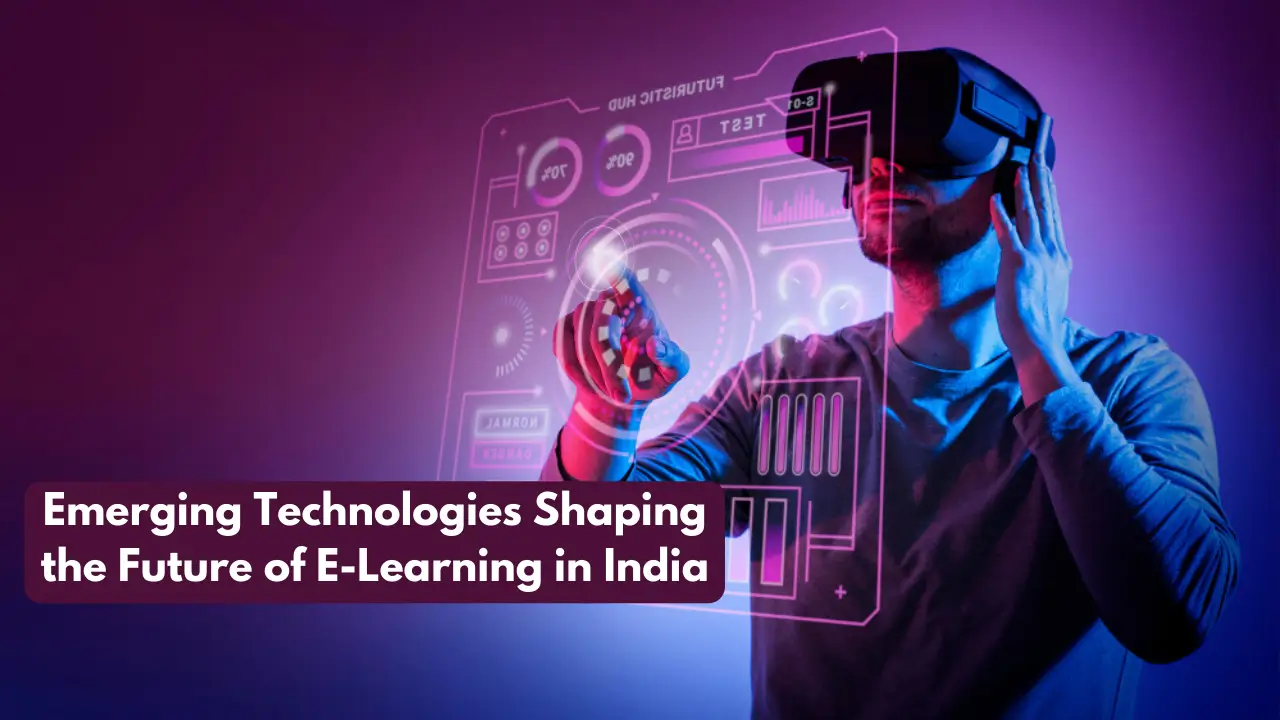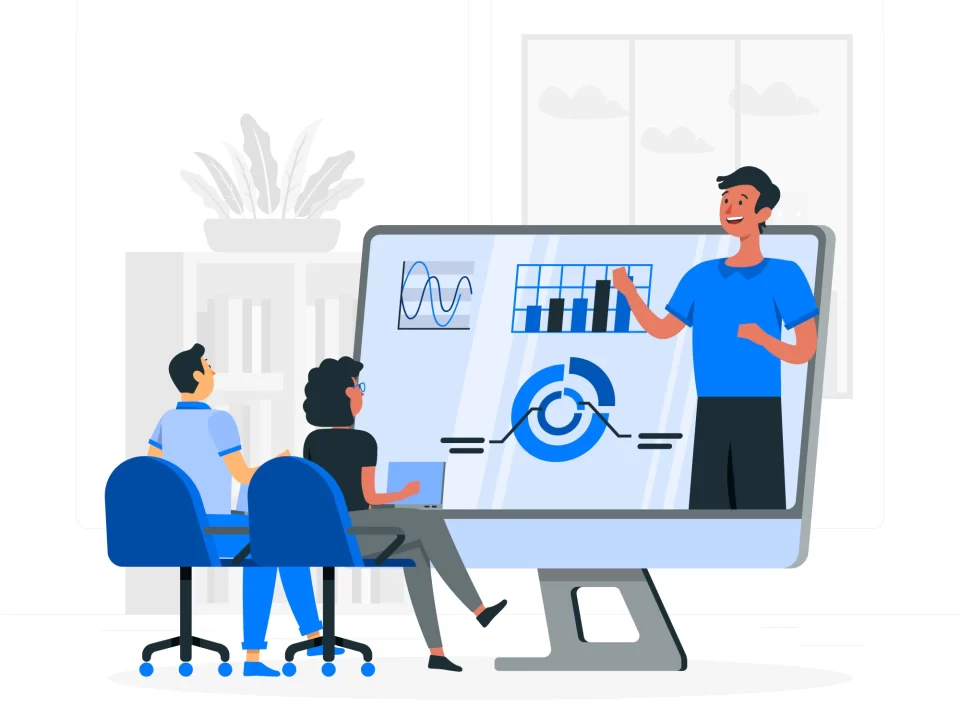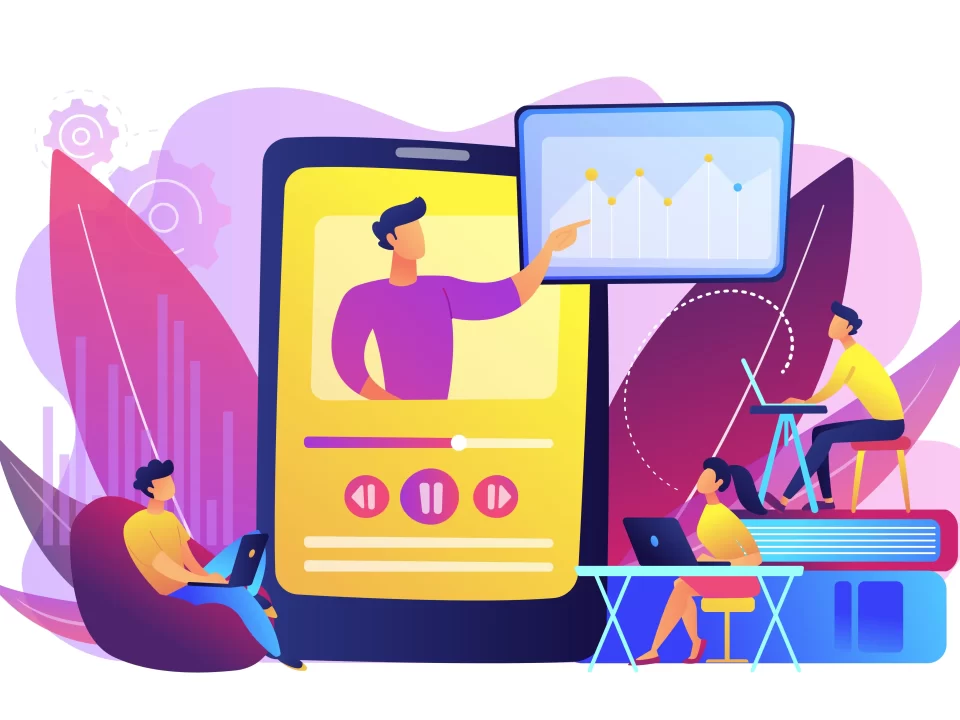
Bengaluru Jeweler Polishes Skills with Knest LMS
June 13, 2024
5 Ways to Make Learning Bite-Sized & Powerful
June 27, 2024Emerging Technologies Shaping the Future of E-Learning in India
India's educational scene is changing dramatically. The era of rote memorization and teacher-centric classrooms is over. Today, a surge of innovation is sweeping through the education industry, fueled by the growing power of technology. At the forefront of this shift is eLearning, which provides a dynamic and engaging platform that meets the diversified demands of a technologically sophisticated age.
India, with its young population and quickly expanding internet coverage, is a key driver in the global transition to eLearning. As we look to the future, it is critical to investigate the developing technologies that will influence the eLearning environment in this thriving country.

5 Ways to Future-Proof Your E-Learning with Emerging Technologies
-
Microlearning and Mobile Learning: Bite-Sized Knowledge for the Go
In today's busy world, attention spans have never been shorter. Learners like information that is brief, relevant, and easily accessible. Here's where microlearning excels. Microlearning modules provide bite-sized bits of information, often lasting 5–10 minutes, and are conveniently accessible on mobile devices. This strategy is ideal for busy professionals and students who can study on the move, during commutes, or in brief gaps between responsibilities.
Mobile learning complements microlearning. With smart phones becoming more prevalent in India, students may access instructional information at any time and from any location. This adaptability enables people to take charge of their own learning paths, establishing a culture of self-directed learning. Consider a doctor reading up on the most recent medical research during her lunch break, or a student studying a tough idea while waiting for the bus. Microlearning and mobile learning combine to form a potent partnership that breaks down traditional time and location constraints, making learning genuinely accessible.
-
AI: Personalization and Adaptive Learning
Artificial intelligence (AI) is set to transform the e-learning experience in India. AI can tailor learning paths by exploiting learner data and taking into account individual strengths, limitations, and learning styles. Consider an eLearning platform that proposes courses based on your previous performance in comparable modules, identifies knowledge gaps using quizzes and assessments, and changes the difficulty level to keep you challenged and interested.
Furthermore, AI can provide adaptive learning, in which the information evolves based on learner involvement. If a learner struggles with a certain idea, the AI may provide extra resources, break down the knowledge into smaller chunks, or suggest alternate learning paths. Conversely, if a learner breezes over a subject, the AI may provide more sophisticated information to keep them interested and challenged. This dynamic strategy guarantees that learners are continually given the most relevant and difficult content, thereby increasing their knowledge retention.
- Gamification: Making Learning Engaging
Making learning fun and engaging should not seem like a burden. Gamification adds game-like features like points, badges, leaderboards, and challenges to eLearning programs. This not only makes studying more enjoyable and interesting but also encourages healthy competition and a sense of success among students. Consider a language learning platform where students receive points for completing exercises, assessments, obtain badges for mastering grammatical abilities, and compete against peers on leaderboards to go up the fluency ladder.
Gamification can be especially beneficial in India, where an increasing number of students are used to interactive and immersive experiences. By introducing gaming features, eLearning systems may capitalize on the natural urge for competitiveness and play, making learning a more pleasurable and rewarding experience. Gamified eLearning experiences improve engagement, motivation, and information retention.
-
Immersive Learning Experiences Using AR/VR
AR and VR are not just future notions; they are becoming more popular eLearning tools. AR overlays digital information on the actual environment, resulting in interactive learning experiences. Consider a situation in which an engineering student may envision a complex machine in 3D by pointing their smartphone at a design, allowing them to investigate its components and functions in an interactive way.
VR, on the other hand, transfers students to fully replicated surroundings. This opens up chances for experiential learning, allowing students to practice skills in a safe and controlled setting. For example, medical students can practice surgical operations in a virtual reality simulation before setting foot in an operating room, allowing them to refine their techniques and build confidence before dealing with real-world scenarios.
AR and VR have enormous potential to alter eLearning in India, providing learners with a more engaging and immersive manner to gain knowledge and build important skills. These technologies have the potential to transform how students study tough sciences like anatomy and engineering, as well as soft skills like public speaking.
-
Learning Analytics: Optimizing Educational Strategies
It is no longer possible to judge the efficacy of e-learning programs exclusively based on intuition. Today, learning analytics deliver useful information on student engagement, knowledge retention, and overall learning outcomes. This information may be utilized to identify areas for development, optimize course material, and personalize learning experiences to individual learners' requirements.
Learning analytics may measure a variety of variables, including module engagement time, completion rates, quiz and assessment results, and learner feedback. By examining this data, eLearning providers may discover portions where learners struggle or lose attention, information that is either too difficult or too basic, and learning paths that need to be optimized. This data-driven strategy enables the continual refinement of eLearning courses, ensuring that they effectively provide the required learning objectives.
Introducing Knest LMS: Shaping the Future of E-Learning in India
Knest LMS stands out as a leader in the Indian eLearning landscape, offering robust solutions that integrate seamlessly with emerging technologies. By partnering with Knest LMS, educational institutions across India can harness the power of microlearning, AI-driven personalization, gamified learning experiences, immersive AR/VR simulations, and advanced learning analytics. Together, these innovations empower educators to deliver engaging and effective learning experiences that prepare students for success in the digital age.
As India embraces these cutting-edge technologies, Knest LMS remains committed to driving educational excellence and fostering a future-ready workforce.
Contact Knest LMS today for a free demo and see how Knest LMS is shaping the future of eLearning in India today.
Emerging Technologies Shaping the Future of E-Learning in India



